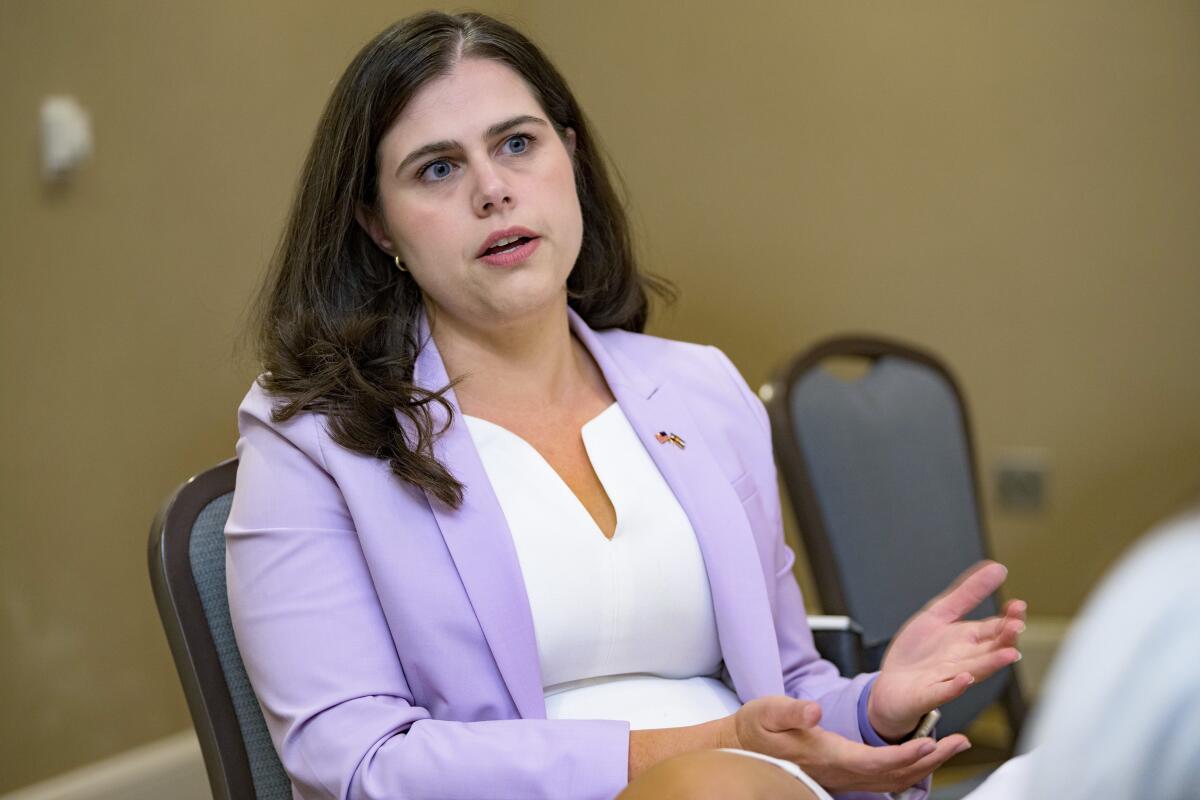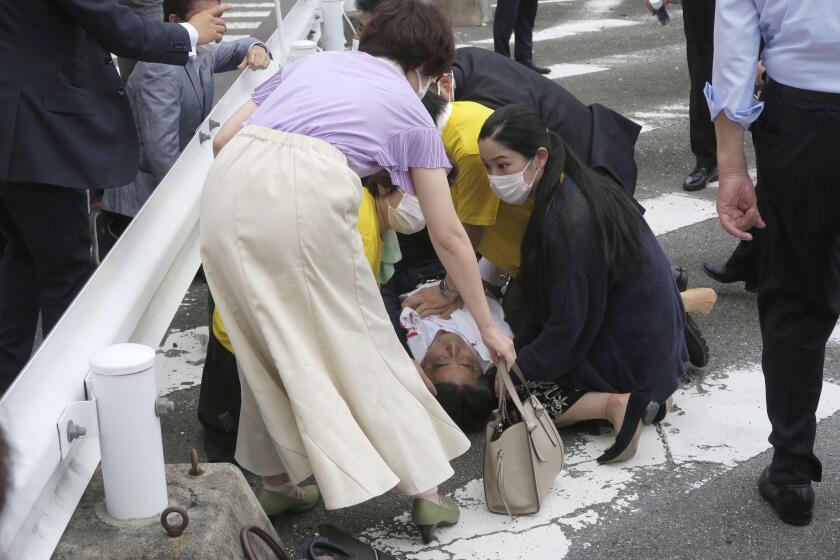Facing continued threats, some election workers weigh quitting

BATON ROUGE, La. — After polls closed in New Mexico’s primary last month, a worker returning ballots and other election materials to the clerk’s office in Santa Fe was followed by a partisan election observer driving so close that mere inches separated their bumpers.
The poll worker was so rattled by the ordeal that she said she may not return for the upcoming November election, according to Santa Fe County Clerk Katharine Clark.
The incident is just one of many in which election officials and workers have felt threatened since the 2020 presidential election and the false claims that it was stolen from former President Trump. A federal effort to investigate these threats has so far yielded three prosecutions since it was launched a year ago.
In the meantime, the harassment and death threats haven’t stopped. They have contributed to an exodus of election officials across the country and made recruiting poll workers even harder — adding to the challenges of conducting smooth elections in the fall.
“I’m a Republican recorder living in a Republican county where the candidate that they wanted to win won by 2-to-1 in this county and still getting grief, and so is my staff,” said Leslie Hoffman, the top election official in Yavapai County, Ariz.
Former Japanese Prime Minister Shinzo Abe was fatally shot during a campaign speech in the western city of Nara. A suspect has been arrested.
Hoffman announced last week that she was resigning to take another job, saying her decision was motivated largely by “the nastiness that we have dealt with.” Hoffman said the county elections director left for the same reasons.
On Friday, an official with the U.S. Department of Justice was scheduled to update state election officials from across the country gathered in Louisiana for their summer conference on the work of the task force that was announced in June 2021.
Three men have been charged by federal prosecutors, with one of them pleading guilty last month. In that case, Colorado Secretary of State Jena Griswold was the subject of multiple threatening posts on social media.
Griswold said the threats have not stopped. Just last week, a caller to her office’s public phone line said: “Hey, I’ve got a message for the secretary and I want you to pass it along. The angel of death is coming for her in the name of Jesus Christ.”
“The fact of the matter is they’ve only done three prosecutions when we know there are literally thousands and thousands of violent threats going to election workers and secretaries of state,” Griswold said. “People are using threats as part of the attack on democracy to try to intimidate election workers, to try to intimidate county clerks and secretaries of state, and they are succeeding in some places.”
Kenneth Polite, assistant attorney general for the department’s criminal division, said federal investigators were working through each report to determine which cases can be successfully prosecuted, noting challenges in attributing threats often made anonymously and weighing free speech protections. He said additional prosecutions are expected.
“The department is committed to protecting our election community from violence and threats of violence,” Polite said in a statement. “These are ordinary people from across the political spectrum filling a vital democratic role for our nation, typically with little recognition or support.”
In the first six months of the task force, members conducted over 20 trainings and outreach events on election threats with state, local, and federal law enforcement as well as election officials and social media companies.
A survey released earlier this year by the Brennan Center for Justice at New York University’s School of Law found one in three election officials knew someone who had left a job in part because of threats and intimidation, and that one in six had experienced threats personally.
Federal and state election officials and Trump’s own attorney general have said there is no credible evidence the election was tainted. The former president’s allegations of fraud were also roundly rejected by courts, including by judges Trump appointed.
Experts said it is critical that those making threats are held accountable to deter others from thinking they can do the same.
“The steps that the task force has taken, election officials are appreciative. But absolutely there is more to be done,” said Liz Howard, a former state election official in Virginia now at the Brennan Center.
Among the recommendations that the Brennan Center has made is to expand the task force to include state and local law enforcement agencies that are typically the first contact for an election official.
A group of former and current election and law enforcement officials recently formed the Committee for Safe and Secure Elections, which plans to provide guidance and training for preventing and responding to threats and violence against election officials.
Last month, the U.S. Election Assistance Commission — which distributes federal grants to election offices — said its funding could be used to protect election officials against threats. Legislation has also been pursued at the state and federal levels to increase penalties for those targeting election workers.
In Colorado, lawmakers passed a bill that makes it a misdemeanor to release the personal information of an election official for the purpose of threatening them or their family.
On Capitol Hill, Sen. Amy Klobuchar, a Democrat from Minnesota, held a hearing last year highlighting the threats and urging federal protections for election workers. Klobuchar and other Senate Democrats have sent a letter asking the Department of Homeland Security and the FBI to issue a joint public service announcement to local law enforcement agencies to “ensure that they are aware of both the recent increase in these threats against election officials and federal resources for reporting and countering them.”
In Santa Fe, Clark said anxiety remains high among her staff. Employees have been trained on active shooter situations, they have requested bulletproof glass be installed and GPS tracking be used during the transportation of ballot boxes.
While she is concerned about her safety, she says she’s not ready to quit or change careers, noting her responsibility to voters who elected her.
“My dad served in the military, my grandfather served in the military,” Clark said. “I don’t feel it’s bad enough yet to feel that my public service is too much.”
More to Read
Sign up for Essential California
The most important California stories and recommendations in your inbox every morning.
You may occasionally receive promotional content from the Los Angeles Times.











